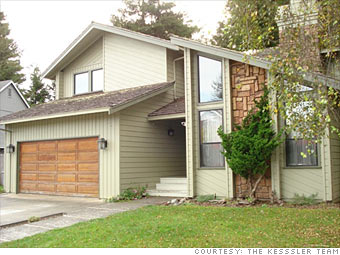
The California coast between San Francisco and the Oregon border is much less developed than places more south. Eureka owed much of its 19th century development to three extractive industries: gold mining and shipping, lumbering and fishing.
The lumber industry has declined as much of the nearby forest land has been set aside in preserves, according to Dean Kessler, owner of the Kessler Team, a real estate brokerage. The city lies within a short distance of several state parks and less than an hour from Redwood National Park, home of some of the world's tallest trees.
As the lumber industry waned, jobs vanished, contributing to the slow decline of Eureka's population. Fishing remains important and there are many new jobs in the service industries. Tourism has grown in importance.
There are many elements that go into making this town attractive, especially the natural beauty. "You have the Pacific Ocean crashing against the beach, the redwoods, the mountains behind us," said Kessler.
The frigid waters of the California Current keeps Eureka's climate close to ideal with mild, though rainy, winters and dry, cool summers. Temperatures have never hit the 90's.
The cityscape boasts one of the finest collections of Victorian dwellings in the United States, including the eye-popping Carson House. It also has a vibrant arts and theater scene with events like the annual Redwood Coast Jazz Festival being held every month or so. Home prices are quite low for coastal California with typical homes selling for about $200,000, according to real estate website Zillow.
For further information: Trulia
NEXT: Barnstable, Mass.
